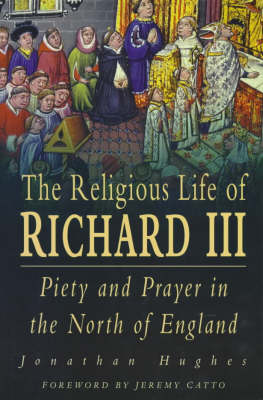Sutton History Paperbacks
1 total work
The author argues that although accused of a variety of crimes, Richard III was also very religious, an austere practitioner of chivalric code of ethics, a public benefactor and protector of the Church, a founder of chantries, one who in his public pronouncements upheld a strict puritanical code of sexual morality in marked contrast to many of his fellow courtiers. In his private life this unscrutable man can be considered a man of piety, a practitioner of the mixed life to rank with his mother, Cicely Neville and his sister, Margaret, Duchess of York and Burgundy. No one has really accepted Richard's religious behaviour at face value. Shakespeare and other historians have distorted the image of Richard at prayer, seeing it as a cloak of hypocrisy to give moral credibility to a ruthless usurpation of power. Hughes relates the prayers in Richard's book of hours, especially those included for him, to his sense of mission, he suggests that they gave him strength to pursue a course of action opposed to the values of his contemporaries and that they enabled him to make sense of the hostility he felt.
Richard III emerges from this book in part a conventional figure of his time but in part an unusual, little understood man, every bit as compelling and even more complex than Shakespeare's mythical anti-hero.
Richard III emerges from this book in part a conventional figure of his time but in part an unusual, little understood man, every bit as compelling and even more complex than Shakespeare's mythical anti-hero.
